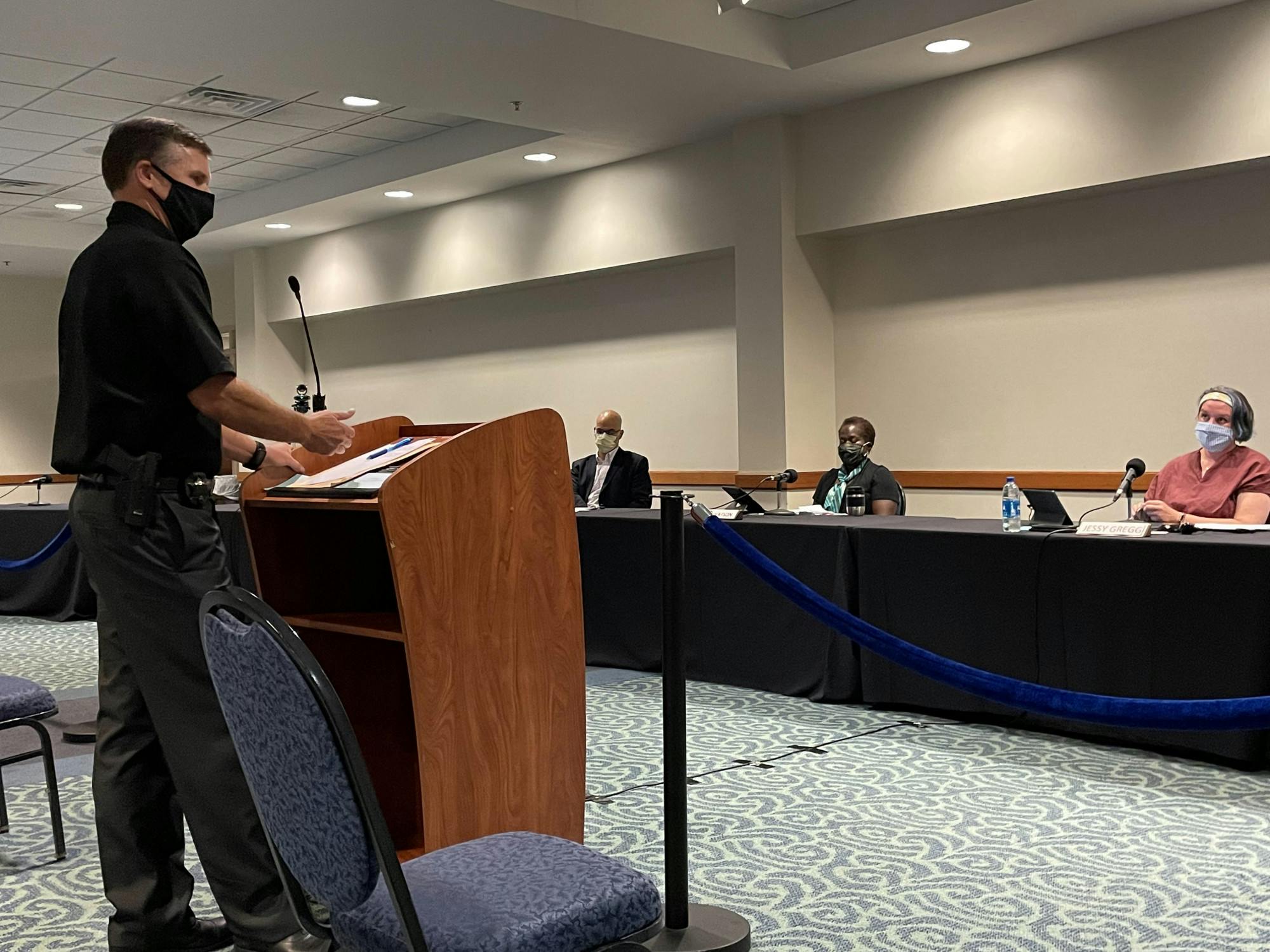On Tuesday, Sept. 14, Ingham County Sheriff Scott Wriggelsworth came to the city council discussion to advocate against Ingham County Prosecutor Carol Siemon's new felony firearm policy.
The current Michigan firearm statute was created in 1976 in an effort to deter gun violence. The statute states that if someone is carrying a firearm or pneumatic gun while committing a felony, that person is imprisoned for two years on first conviction, five years on second conviction and 10 years on third conviction.
This is a mandatory sentence and is one of the few mandatory sentences left in the state’s criminal code, according to Safe & Just Michigan.
Michigan's firearm policy applies to those who legally owned the firearm and those who did not discharge their weapon while the crime was being committed.
Furthermore, this statute raised a lot of controversy due to the evidence of racial disparity in the sentencing of felony firearm charges.
According to safeandjustmi.org, “Black people in Michigan comprise just 14 percent of the state's population, but are heavily overrepresented in prison, where they account for 53 percent of the incarcerated population.”
“Among people incarcerated on felony firearm charges, the disparity is even worse, with Black people comprising 82 percent of those sentenced.” the report says.
Studies show that the racial impact of this charge is having similar effects in Ingham County, in which 269 people are serving felony firearm sentences as of 2018.
“Research shows that mandatory minimums and the felony firearm law have failed to deter the use or possession of firearms, and the racially disparate impact of firearm charges is well documented,” Safe and Just Michigan Executive Director John S. Cooper said.
According to a report by Ingham County Prosecutor Carol Siemon, Ingham County's population is 12% Black, but 80% of the people serving a felony firearm sentence from Ingham County are Black.
Additionally, in 2020, 205 cases of felony firearm were issued by the Ingham County Prosecutors Office and 138 (67%) of those charges were issues against persons who are Black.
Siemon aimed to address this disparity by issuing a new policy in which prosecutors will “no longer charge the offense except under most extreme circumstances,” ensuring that persons will be prosecuted only on their actual behavior.
Wriggelsworth appeared in front of the East Lansing City Council to fight this change in policy under the concerns that it will fail to hold people criminally accountable and the vagueness of what a “most extreme circumstance” actually looks like.
“I try to stay in my lane as the sheriff,” Wriggelsworth said. “I'm not an attorney, I don't want to be the prosecutor, but I just can't keep quiet because I feel that it endangers the public.”
However, there is no evidence that backs up these concerns. According to a report from the prosecutor’s office, “It is only in Ingham County, Michigan where there have been misleading claims that criminal justice reforms are tied to a violent crime wave.”
Wriggelsworth shared additional critiques with the policy, including issues with what he believes to be Siemon's overstepping into other branches of government.
“[Siemon's] dabbling in all three branches of government,” Wrigglesworth said. “We both find ourselves in the executive branch, but she's ignoring legislation on the legislative branch, and she's trying to play the judge on the judicial side because she doesn't like the mandatory sentence that the judge would have to charge.”
Councilmember Lisa Babcock came to Siemon's defense.
“She's not changing the charges that you can request,” Babcock said. “She's saying that the policy of her office will change when they prosecute, and I think that's a very important distinction if you understand that.”
According to safeandjustmi.org, the decision to charge a firearm felony is at the county prosecutor's discretion.
Support student media!
Please consider donating to The State News and help fund the future of journalism.
“She is again saying what charges she will and will not prosecute under certain circumstances.” Babcock said. “That's again an important distinction that she is not playing judge and she is not playing cop.”
When Mayor Pro Tem Dana Watson asked the sheriff what he did after learning there were racial disparities in arrests and charges, Wrigglesworth said the causes of those disparities are still being researched.
“There are people way smarter than I'll ever be working on the underlying root causes of the disparities and trying to figure out what's causing it to get less people in the system,” Wriggelsworth said. “So, I don't have all those answers. I'll never have all those answers.”
East Lansing Mayor Jessy Gregg closed the conversation, thanking Wriggelsworth for bringing his experience before the council.
“I really appreciate your perspective,” Gregg said. “You've got a lot of experience, but I don't have that. It's important for us to continue to have these conversations as we go forward.”
Discussion
Share and discuss “New felony firearm policy mounts tension at city council meeting” on social media.







